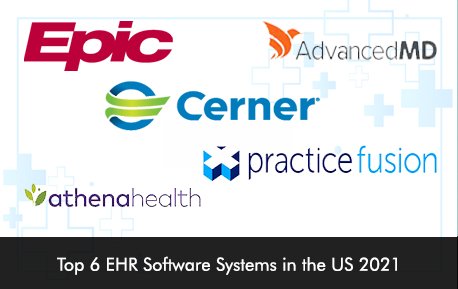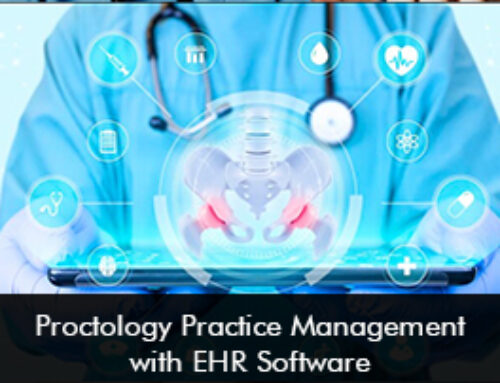Electronic Health Records Software systems have helped to streamline administrative, financial, and clinical workflows of hospitals, clinics, and medical practices. The EHR Software systems have transformed how health care providers operate within the United States and have been especially fruitful during the COVID-19 pandemic. EMR software providers have been proactive to offer assistance and support to their users in the form of updating their users about how to optimize their software system in times of crisis.
The EHR Software facilitates by providing Practice Management, Patient Engagement, and billing solutions to its users. Through the EHR software patient data is easily accessible due to cloud-based services and analytics features helps to track and evaluate data in real-time providing insights into clinical and financial goals which facilitate informed decision-making.
Features of a top-ranked EMR Software System
The right Electronic Medical Records (EMR) Software system should have the following tools and functionalities which can help practices streamline patient care and maximize productivity levels.
- Simple patient scheduling
- Track patient workflows
- Robust set of charting tools
- Templates and order sets that can be customized
- Reporting and analytics
- Intuitive and user-friendly interface
- Round the clock access to patient records
- HIPAA Compliant Platform
2021’s best EHR Software Vendors in the Market
To save your time on research we have developed a list of 6 outstanding and most popular hospital inpatient EHR software systems of 2021 in the US that dominate the healthcare industry.
- Epic EMR Software – is one of the top Electronic Health Records vendors in the United States. Epic Systems provide dedicated modules for a variety of specialties like cardiology, nephrology, ENT, radiology, and many more. The Epic Systems EHR provides complete functionalities through its robust features comprising of telehealth, population management, and revenue cycle management.
- eClinicalWorks EMR Software – is designed to streamline workflows for health care providers and medical facilities. It is one of the industry leaders in the American healthcare technology industry. The cloud-based EHR Software offers a Grid Cloud that keeps all patient data secure and available round the clock. The HIPAA Compliant EHR Software has features like e-Prescribing, patient portal, scheduling management, and charting.
- AdvancedMD EMR Software – also offers cloud-based solutions to small and mid-sized medical practices. AdvancedMD provides a complete integrated suite of benefits through features like appointment scheduling, patient portal, e-prescribing, lab connectivity, and Practice Management solutions. The patient records and data are easily accessible even while traveling. This mobility keeps the health care provider updated and better informed. With AdvancedMD templates can be easily customized to optimize workflows.
- Practice Fusion EMR Software – is a web-based EHR Software system proving analytics, charting, billing, lab connections, and e-prescribing features. The U.S based company connects 600 labs, imaging centers, and pharmacies. The EHR Software enables simplified charting through customizable templates. Scheduling features manage appointments and hence reduce the issue of no-shows.
- Cerner PowerWorks Practice Management Software – offers a set of solutions facilitating healthcare providers to enhance patient care. Cerner EHR is most suitable for larger hospitals and clinics with multiple specialties. The integrated Electronic Health Records software solution provides interoperability, IT management, revenue management, and population health and analytics tools.
- athenahealth EMR Software – provides cloud-based and on-premise solutions to healthcare organizations of every size and specialty. The robust set of features and functionalities includes medical billing, patient engagement, population health, care coordination, and mobile capabilities which lets the practitioner practice on the go. The HIPAA Compliant platform connects with 160,000 plus providers and enables seamless sharing of patient data across the different continuum.







